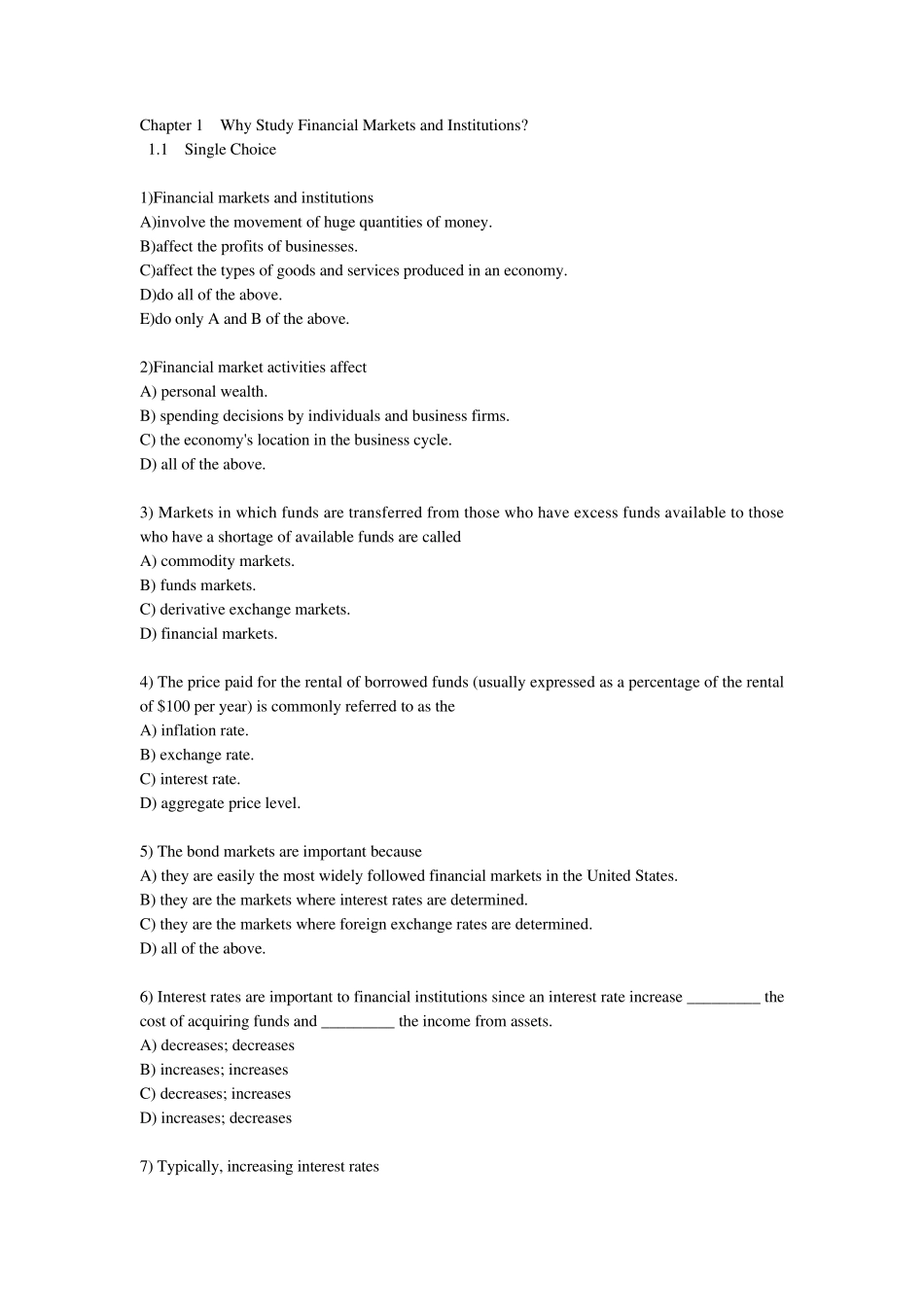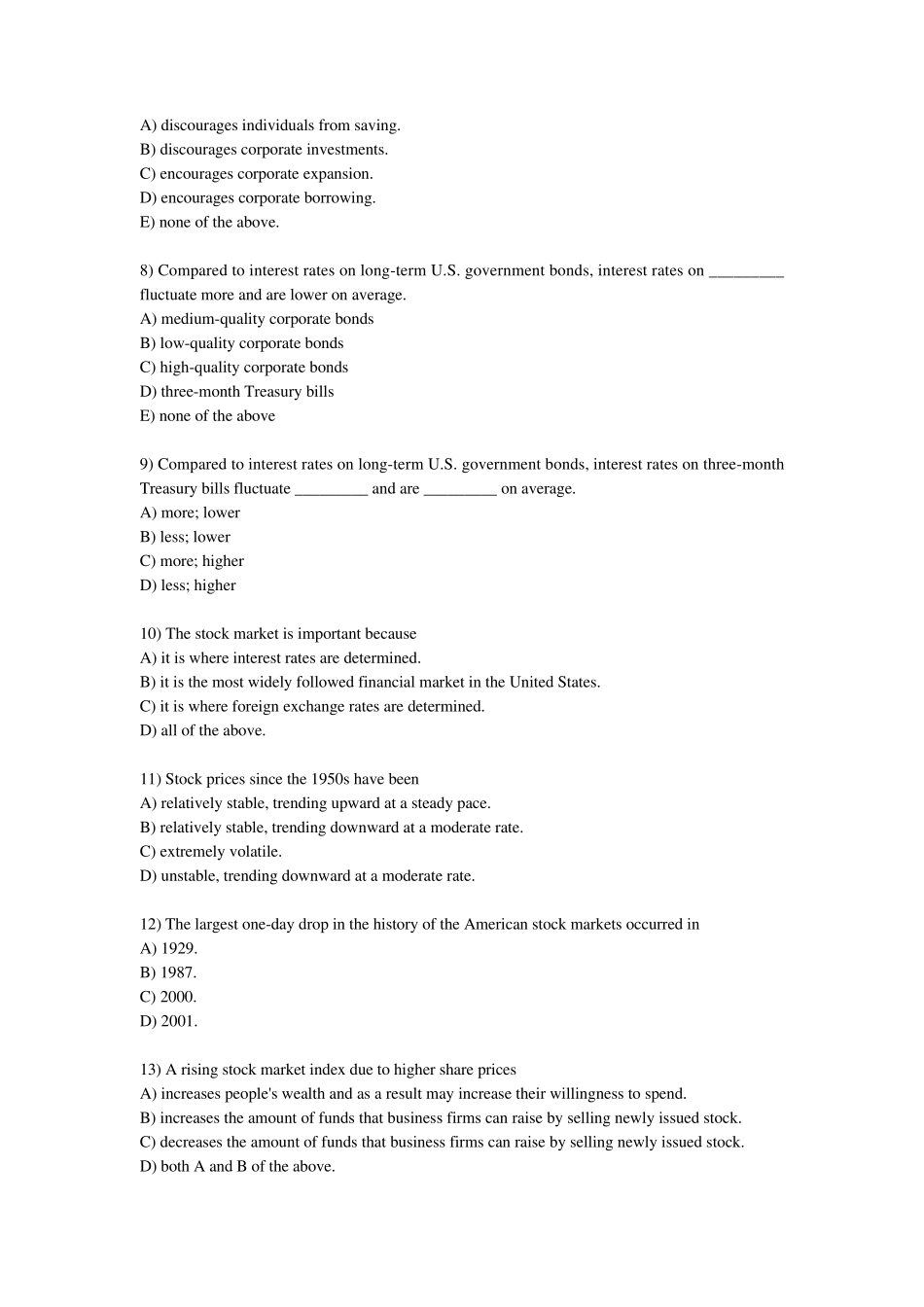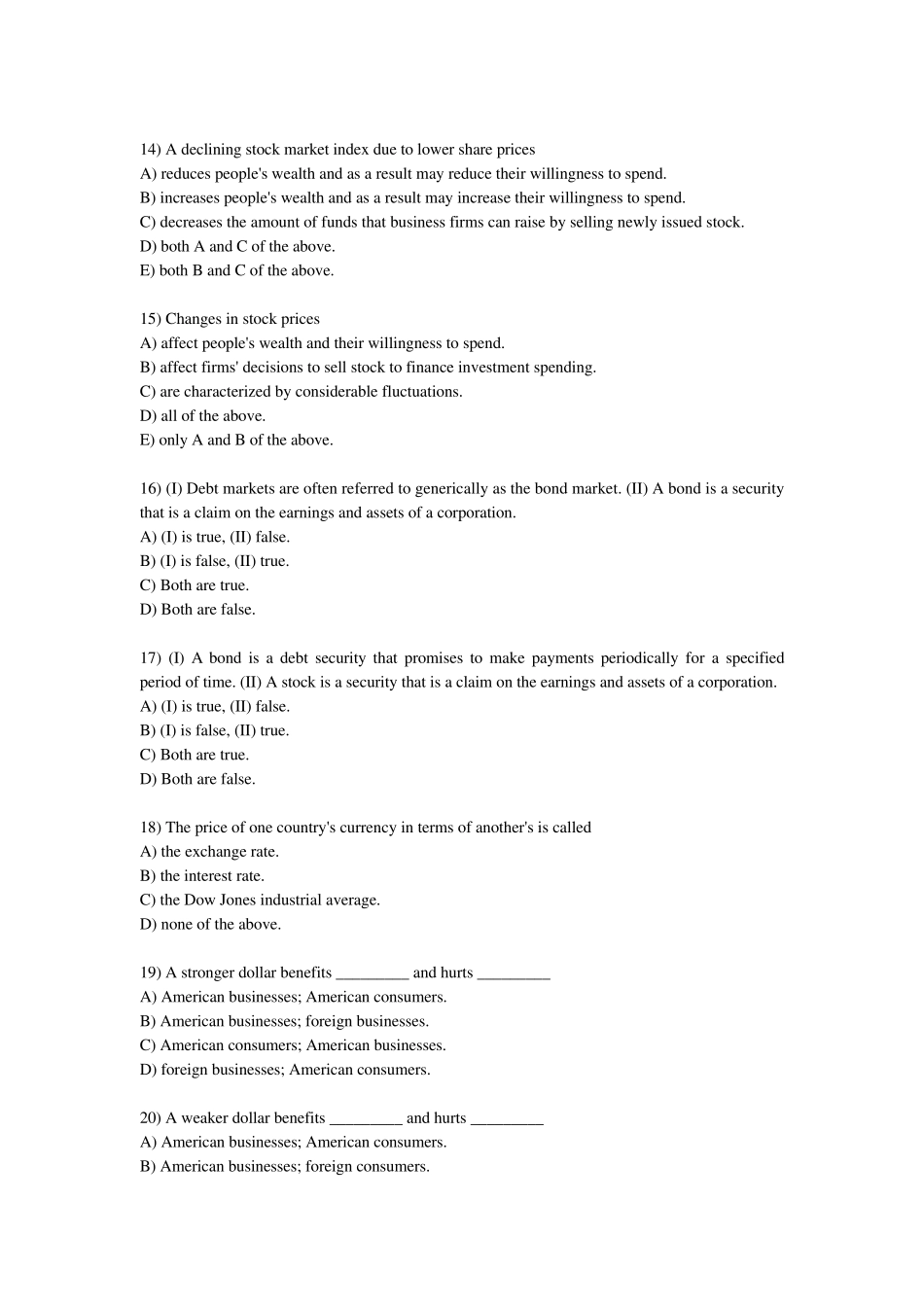Chapter 1 Why Study Financial Markets and Institutions? 1.1 Single Choice 1)Financial markets and institutions A)involve the movement of huge quantities of money. B)affect the profits of businesses. C)affect the types of goods and services produced in an economy. D)do all of the above. E)do only A and B of the above. 2)Financial market activities affect A) personal wealth. B) spending decisions by individuals and business firms. C) the economy's location in the business cycle. D) all of the above. 3) Markets in which funds are transferred from those who have excess funds available to those who have a shortage of available funds are called A) commodity markets. B) funds markets. C) derivative exchange markets. D) financial markets. 4) The price paid for the rental of borrowed funds (usually expressed as a percentage of the rental of $100 per year) is commonly referred to as the A) inflation rate. B) exchange rate. C) interest rate. D) aggregate price level. 5) The bond markets are important because A) they are easily the most widely followed financial markets in the United States. B) they are the markets where interest rates are determined. C) they are the markets where foreign exchange rates are determined. D) all of the above. 6) Interest rates are important to financial institutions since an interest rate increase _________ the cost of acquiring funds and _________ the income from assets. A) decreases; decreases B) increases; increases C) decreases; increases D) increases; decreases 7) Typically, increasing interest rates A) discourages individuals from saving. B) discourages corporate investments. C) encourages corporate expansion. D) encourages corporate borrowing. E) none of the above. 8) Com...


